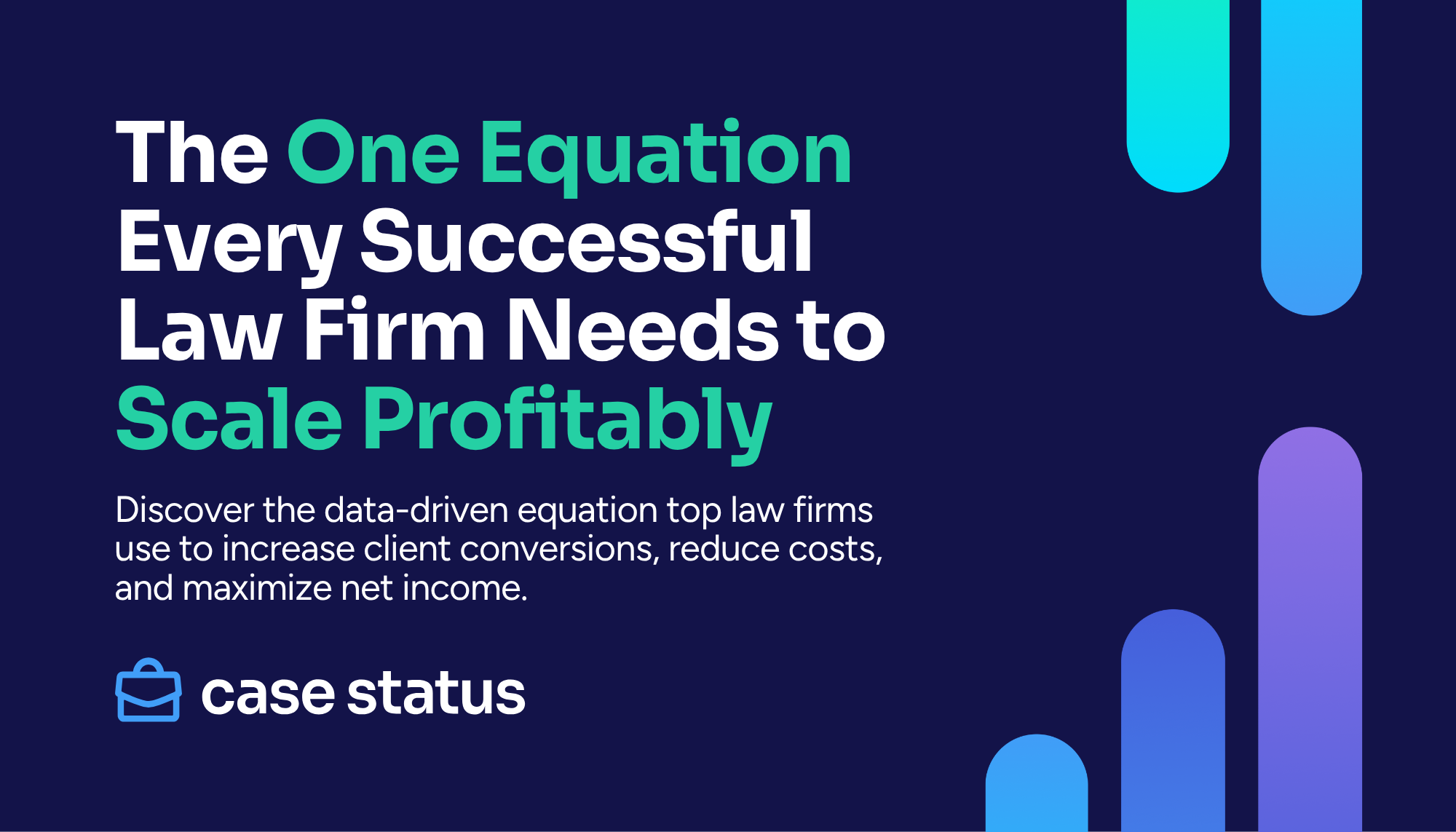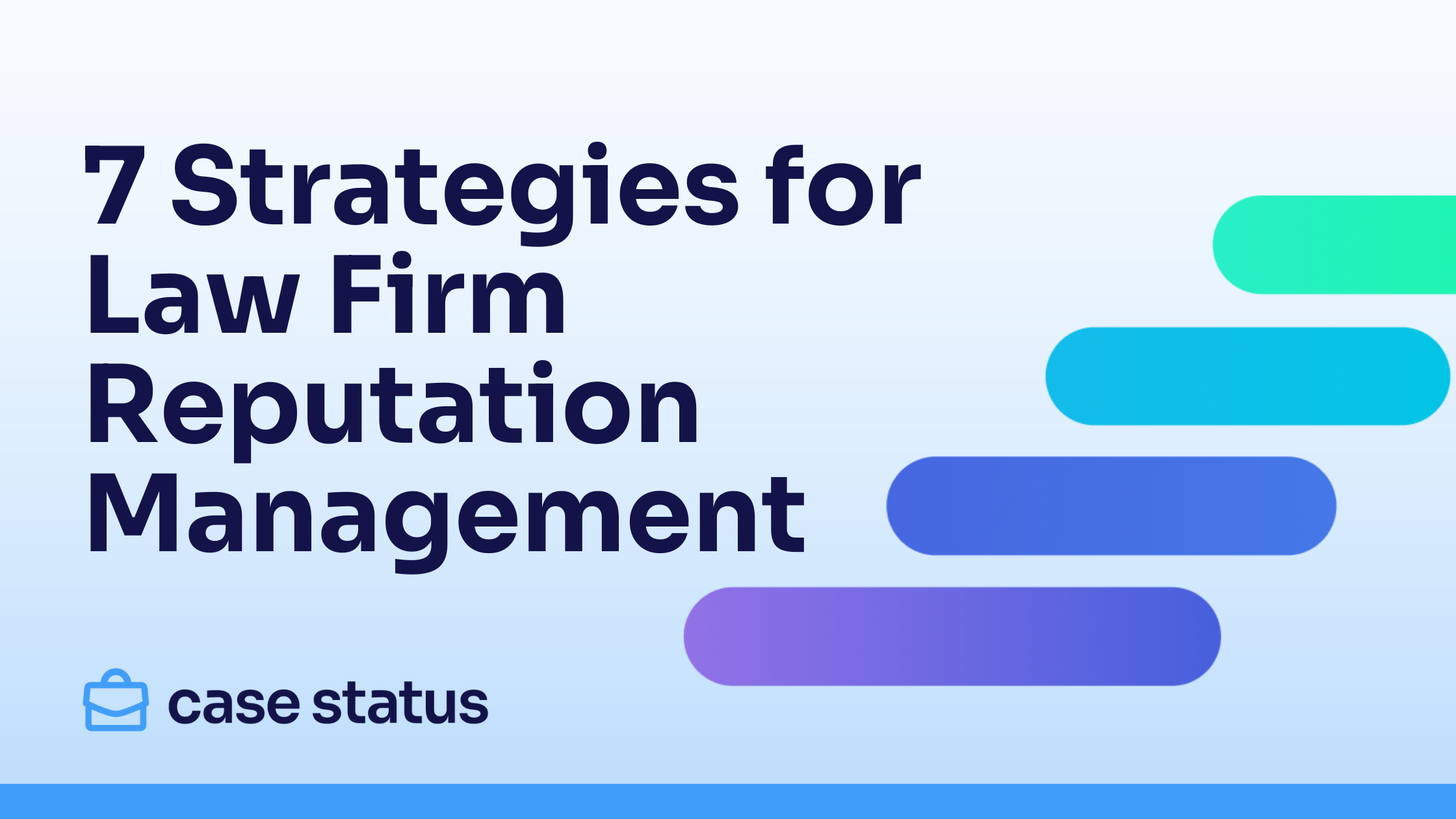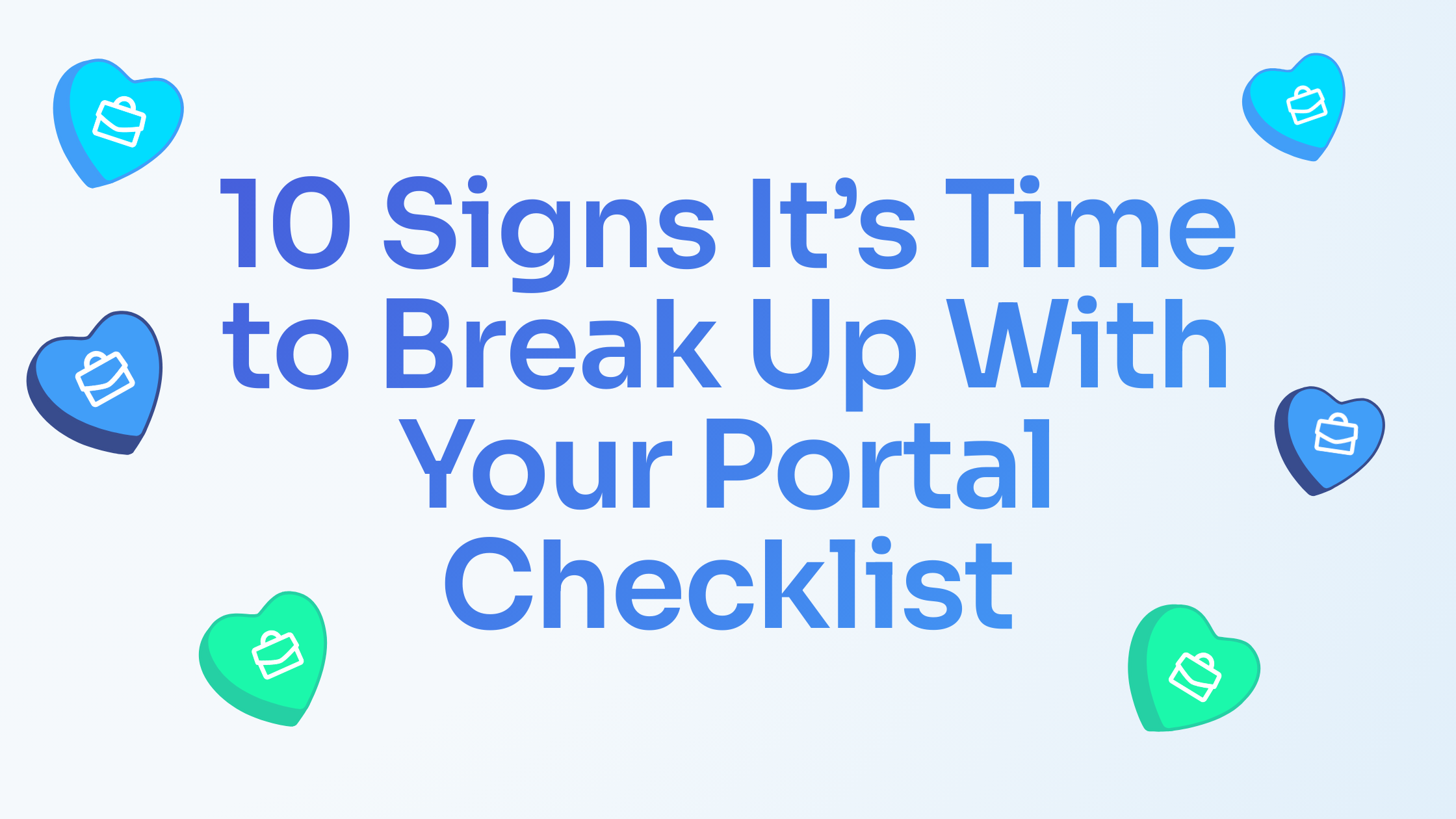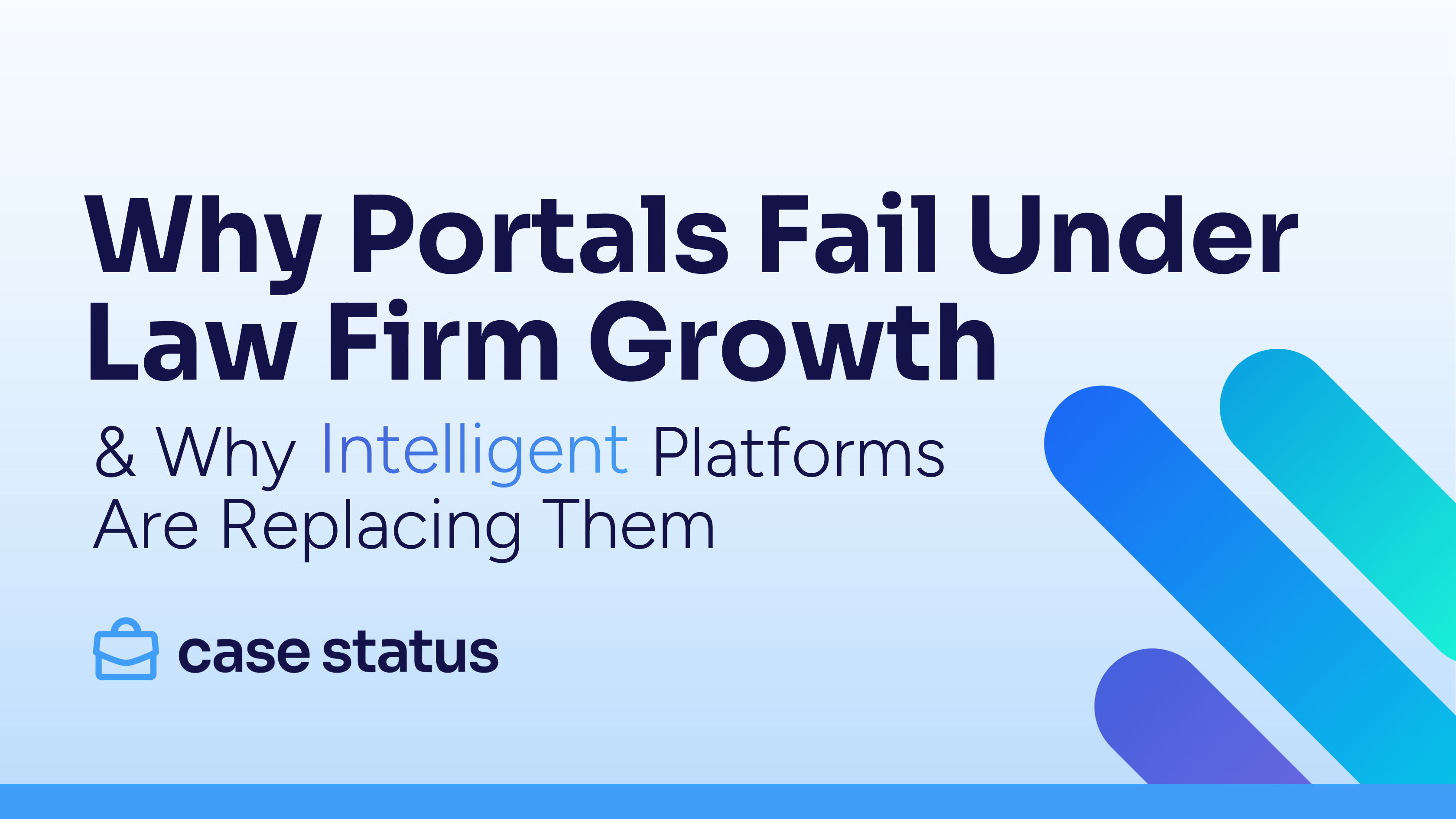
Every law firm serving consumer clients is, at its core, a service business. Like any service-based enterprise, law firms must attract prospects, convert them into clients, deliver excellent service, and turn those satisfied clients into powerful referral sources—all while controlling operational costs. But unlike most industries, law firms rarely operate with the same level of data rigor, process optimization, and financial modeling.
What if there was one equation—a framework—that could give law firm leaders a clear, measurable view of the entire business? One that breaks down performance across every stage of the client journey and ties it directly to net income? That is exactly what CEO Shawn Lehocky has implemented with great success as at Pond Lehocky Giordano.
Let’s walk through that equation—and how it can transform how your law firm grows.
The Law Firm Success Equation
Here’s the equation that underpins high-performing firms:
Prospects × Contact Rate × Qualified Rate × Retained Rate × Fee Generation Rate × Avg. Fee – (Fixed & Operational Expenses) = Net Income
.png)
This model, known as the “Financial Assembly Line,” maps every client interaction into a performance metric. When used correctly, it becomes the ultimate management dashboard.
Phase 1: Awareness (Prospects)
The journey starts when someone faces a legal problem—an accident, divorce, criminal charge—and starts looking for help. That person becomes a prospect.
Marketing is your first line of offense here. Traditional media (TV, billboards, radio) builds name recognition, but digital marketing (SEO, Google Ads, social media, reviews) offers precise targeting.
Key Metrics:
- Website traffic
- Lead source attribution
- Referral rate
To grow awareness efficiently, you need to know how many potential clients you’re reaching—and whether that pool is expanding or contracting.
Phase 2: Consideration (Contact Rate & Qualified Rate)
Once someone becomes aware of your firm, they enter the consideration phase. They compare firms, read reviews, call for consultations, and assess credibility.
Contact Rate is the percentage of prospects who reach out and get a real, timely human response. If 500 prospects call and 300 are answered promptly, your Contact Rate is 60%.
Qualified Rate is the percentage of contacts who are a good fit. If 300 people call, but only 150 have a viable legal issue that aligns with your firm’s focus, your Qualified Rate is 50%.
How to Improve Contact & Qualified Rates:
- Ensure phone calls are answered by knowledgeable, empathetic staff
- Offer multiple intake options (call, text, chatbot, form)
- Align intake hours with client needs (nights/weekends if needed)
- Train intake staff on Ideal Client Profiles (ICPs)
- Use CRM and AI to pre-screen or route leads
These two rates reflect both your marketing alignment and your intake efficiency.
Phase 3: Decision (Retained Rate)
Of those who qualify, how many hire your firm?
Retained Rate measures how effectively you close business once someone is interested. If 150 qualified leads result in 90 signed clients, your Retained Rate is 60%.
Tips to Improve Retention:
- Be transparent about pricing and timelines
- Send contracts and retainer agreements digitally and quickly
- Personalize follow-up communication
- Use a modern onboarding process (via secure client portal)
The decision phase is where trust is either won or lost. Reducing friction and increasing speed here drives firm growth—fast.
Phase 4: Retention & Fee Generation
Getting retained is only the beginning. The real value lies in how cases perform over time.
Fee Generation Rate reflects the percentage of retained cases that actually generate revenue. Not every client ends up with a fee (for example, low damages, dropped cases, etc.). If 90 clients are signed but only 70 generate fees, your Fee Generation Rate is 78%.
Average Fee per Case tells you the typical revenue generated. Not all cases are created equal.
To Increase Value:
- Audit low-performing case types and focus on high-yield areas
- Use legal tech to track fee velocity and margin per case
- Perform periodic “portfolio reviews” of active caseloads
- Implement better case triage and financial forecasting at intake
Successful firms don’t just retain clients—they retain the right clients.
Phase 5: Advocacy (Review & Referral Rates)
Here’s the final (and most overlooked) stage of the law firm growth engine: turning happy clients into marketing powerhouses.
Advocacy Metrics:
- Net Promoter Score (NPS): How likely are clients to recommend you?
- Google Review Rate: Reviews left ÷ Reviews requested
- Direct Referral Rate: Referrals given ÷ Referrals requested
These three metrics—especially when tracked and measured—are the key to lowering cost per acquisition and driving more cases without more marketing spend.
Strategies to Activate Advocates:
- Send thank-you emails post-resolution
- Automate review and referral requests through platforms like Case Status
- Follow up with former clients after 3–6 months
- Run referral incentive programs (where ethical)
According to the 2023 Clio Legal Trends Report, over 80% of clients rely on reviews and personal referrals when choosing a law firm. Advocacy is not optional—it’s your most affordable channel.
Beyond Revenue: Costs and Profitability
Even with strong performance across the client journey, law firm success depends on controlling costs.
Break expenses into:
- Fixed Costs (rent, full-time staff, software)
- Operational Costs (advertising, contractors, expert witnesses)
Measure These Ratios:
- Revenue per case
- Expenses per case
- Ratio of Fixed vs. Operational Costs
Use these insights to evaluate:
- Hiring plans
- Ad spend ROI
- Lease renegotiations
- Case-type profitability
This level of financial discipline allows firms to reinvest in talent, tools, and growth.
Putting It All Together: The Law Firm Success Equation
Revisiting our core formula:
Prospects × Contact Rate × Qualified Rate × Retained Rate × Fee Generation Rate × Avg. Fee – (Fixed & Operational Expenses) = Net Income
Each of these KPIs should be tracked monthly, quarterly, and annually.
Even small improvements in each element compound exponentially. For example:
- Increase Contact Rate from 60% to 75%
- Improve Retained Rate from 50% to 65%
- Raise Avg. Fee from $3,500 to $4,000
The result? A transformative boost in net income—without increasing case volume.
Case Study: Putting the Equation to Work
A mid-sized personal injury firm implemented this model using Case Status as their client engagement platform. By:
- Reducing missed calls with 24/7 intake tools
- Using AI to prioritize high-value prospects
- Automating client updates and review requests
- Analyzing each intake channel’s ROI
They saw:
- 25% increase in Contact Rate
- 32% boost in Retained Rate
- 40% jump in Google Review Rate
And most importantly—a 2x increase in net income per case within 12 months.
The Modern Law Firm’s Operating System
This equation isn’t a concept—it’s a command center. Law firms that adopt this framework don’t just get better—they become more agile, more client-focused, and more profitable.
Want to implement this framework with tools that integrate seamlessly into your daily workflows? That’s where Case Status comes in.
About Case Status
Case Status is the client experience platform designed for modern law firms. Our mobile-first software helps you:
- Increase Contact Rate with instant updates
- Improve Retained Rate through secure messaging and onboarding
- Automate reviews and referrals to drive advocacy
- Integrate with leading CMS systems to track every KPI in your firm’s equation
We help firms move from reactive communication to proactive engagement—boosting satisfaction, efficiency, and revenue along the way.
Conclusion
There is one equation that drives law firm success—and every firm leader should know it.
By mapping each step of the client lifecycle to real data, you unlock smarter decisions, stronger client relationships, and sustainable growth. You don't have to guess. You just have to measure, adjust, and improve.
The best firms already do this.
The next best time to start is today.



